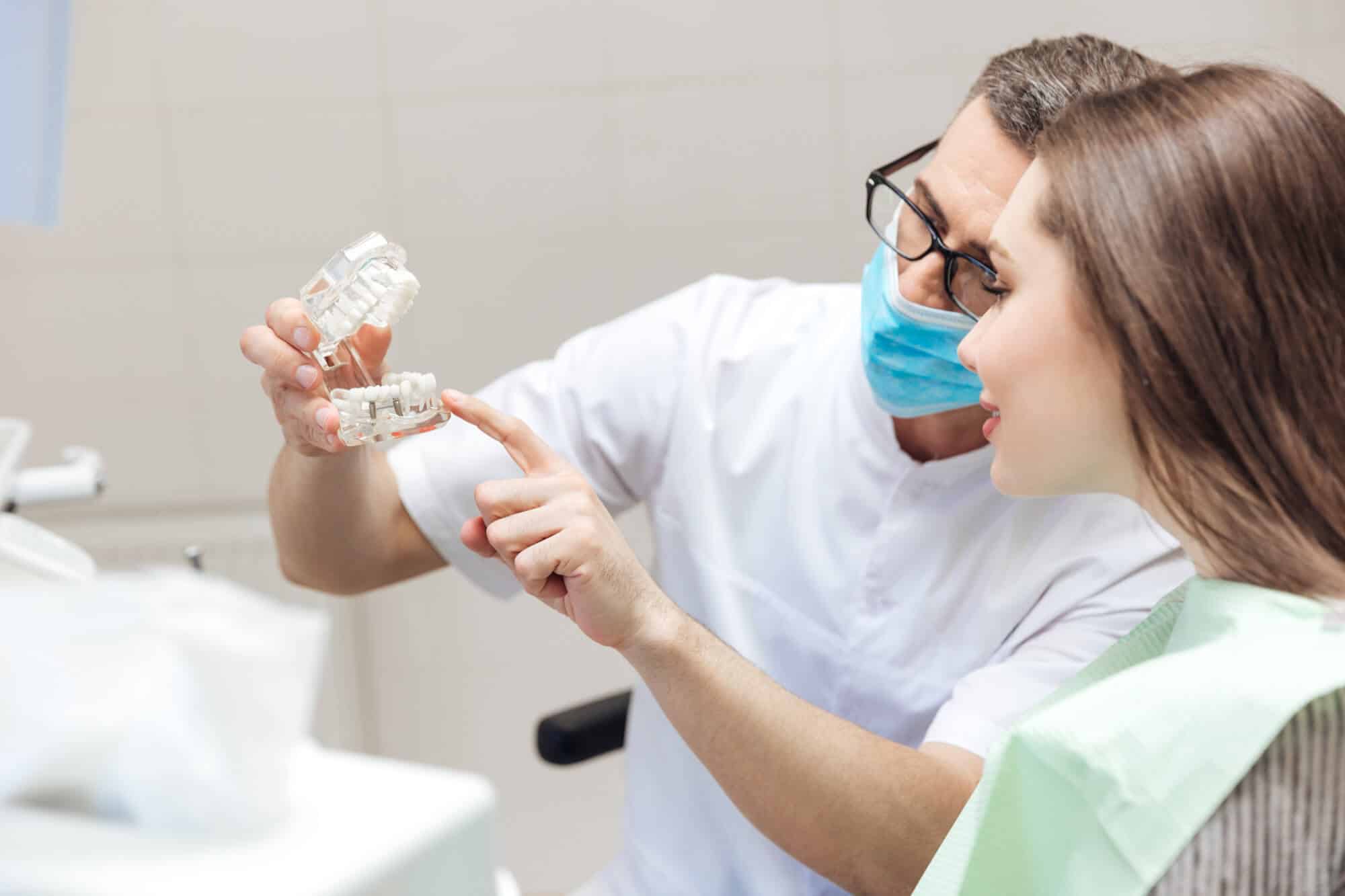Dentists see cracked or chipped teeth on a daily basis. These cracks or chips can happen for all sorts of reasons, and even when they’re not painful, it’s important to get them fixed.
Do you know what to do if you chip your tooth? When something happens to one or more of your teeth, it may not hurt. Your instinct may be not to worry about it, especially if it isn’t in the front part of your mouth.
However, if you do chip your tooth, you should plan on seeing a dentist and finding out your options for repair.
Outlined below are some guidelines for follow-up care after chipping your tooth.
What To Do If You Chip Your Tooth
There are many ways you might chip a tooth, including:
- biting something hard
- grinding your teeth
- eating hot/cold foods in quick succession
- hitting your tooth on a hard surface
- a blow to your face (eg. sports or car accident)
Damage from one of these events can range from slight to extensive, and a small chip may not be equal to a small amount of damage.
It’s important to make an appointment to see your dentist as soon as possible. At your appointment, your dentist will talk to you about your options for repairing the damaged tooth/teeth.
While You’re Waiting
In addition to calling your dentist, there are a few things you can do if you’ve chipped your tooth. Start by rinsing your mouth in warm water.
If there’s bleeding, you can apply pressure with a gauze or a clean cloth. A cold compress against the area may reduce swelling.
If you’re in pain, an over-the-counter pain reliever could help, but don’t take more than the recommended dosage. Clove oil, a natural anesthetic, can also be applied.
If you can find the part of your tooth that broke off, wrap it in wet gauze to bring to your dental appointment.
Your local pharmacy may carry temporary tooth repair kits containing dental wax. This can be placed over chipped teeth to prevent jagged edges from cutting your tongue or the inside of your mouth. This is only recommended for small chips and should not be considered a permanent solution to dental problems.
Until it’s time for your visit to the dentist, avoid chewing on the damaged side of your mouth. Floss around the affected tooth to help relieve irritation and pressure.
Repair Options
Once you’ve made it to your appointment, there are several options your dentist may discuss with you for tooth repair. Depending on the extent of damage, your dentist may recommend:
- polishing
- bonding
- root canal/crown
- tooth extraction/implants
For slight chips, your dentist may either polish the tooth to smooth out any rough edges or they may use dental bonding. Dental bonding involves smoothing the surface of the tooth before applying a conditioning liquid. A tooth-colored composite resin is finally put on top and rounded into the shape of your natural tooth.
If your tooth has sustained extensive damage, the dentist may opt for a root canal and a crown. If the tooth is damaged beyond repair, it may need to be extracted and replaced with an implant so you don’t have missing teeth.
The benefits of dental implants—if you have to go this route—are that they look, feel, and act like natural teeth.
A Healthy, Happy Smile
Chipping a tooth can be traumatizing. You may be in pain or worried about how it will look. Now that you’ve finished this post, however, you know exactly what to do if you chip your tooth.
If you’ve chipped a tooth, don’t hesitate to contact us today to find out what we can do to help restore your smile.

